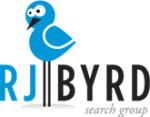Career placement experts see a lot of resumes. And out of the tsunami of qualifications, job descriptions, and references, patterns emerge: most resumes aren’t necessarily hampered by mistakes (that we know of) but rather disorganization, wordiness, and lack of focus.
If you want to take your resume up a notch before sending it out for the next round of interviews, review it for some of these common missteps and put some of these simple fixes to use.
Skip the “Objective” Section
Instead, elect to do a brief summary of experiences and accomplishments in no more than 4-5 bullet points. Keep in mind that an objective written incorrectly could automatically eliminate you from contention.
Hiding the Important Stuff
The fact that you worked somewhere for a decade is definitely important, but it may not be the most important thing about that job in the eyes of your potential employer. Don’t bury the lead by listing date ranges before your title and position at the company. In fact, here’s a great formula offered by Donald Asher:
Name of the Company, City / State of Company, Dates of Employment
Title
Similarly, with for education, use:
Name of Degree, Major, University, City/ State of University, Graduation Year, Peripheral Information (minors, GPA, etc.).
Also include any certifications, continuing education, specific training and other similar experience in this section.
A Page of Solid Text
Most resumes, especially those for individuals who have a lot of experience, can benefit from a little breathing room. If your resume looks more like a page out of a term paper, you should consider injecting some whitespace. One way to do this is to utilize bullet points when you can. Trim each item on your list to a succinct, 3- to 10-word description and keep the list to 10 or fewer items (if possible).
Too Many Words that Say Very Little
There’s a misconception that using a lot of words to say something makes the writer or speaker appear intelligent, but actually the opposite is true. Being succinct isn’t always easy, but it does make for better resume content.
To streamline your resume, eliminate superfluous or redundant words and phrases, unnecessary dates, and articles such as “an,” “a,” and “the.”
Keep in mind that you can also eliminate needless descriptions of what the company does, details about their products/services, etc. Instead, describe your accomplishments, what you save the company, any makings or implementations of new products or services and the results that it had for the company or division.
Jumping All Over the Place
You might have a lot of experience in a lot of different areas, or you might have handled a million different things at your last few jobs, but you’ll want to draw down the focus of what you’ve done in the past to reflect what you want to do in the future. If you look at your resume right now, is it easy to see where your career focus has been, what you’re really good at, and where you want to go from here? If not, tease out the answers to those questions and refocus your information to reflect them.
And for skills and accomplishments taking place 10+ years ago, there’s no need to get into great detail since its less relevant to what’s happening in today’s world. Feel free to add a bullet point or two, but save the rest of the details for a conversation with the potential employer.
Give us a call if you’re looking for a position in banking, finance, accounting, or technology. Our team is here to help you find the right job for your future.

